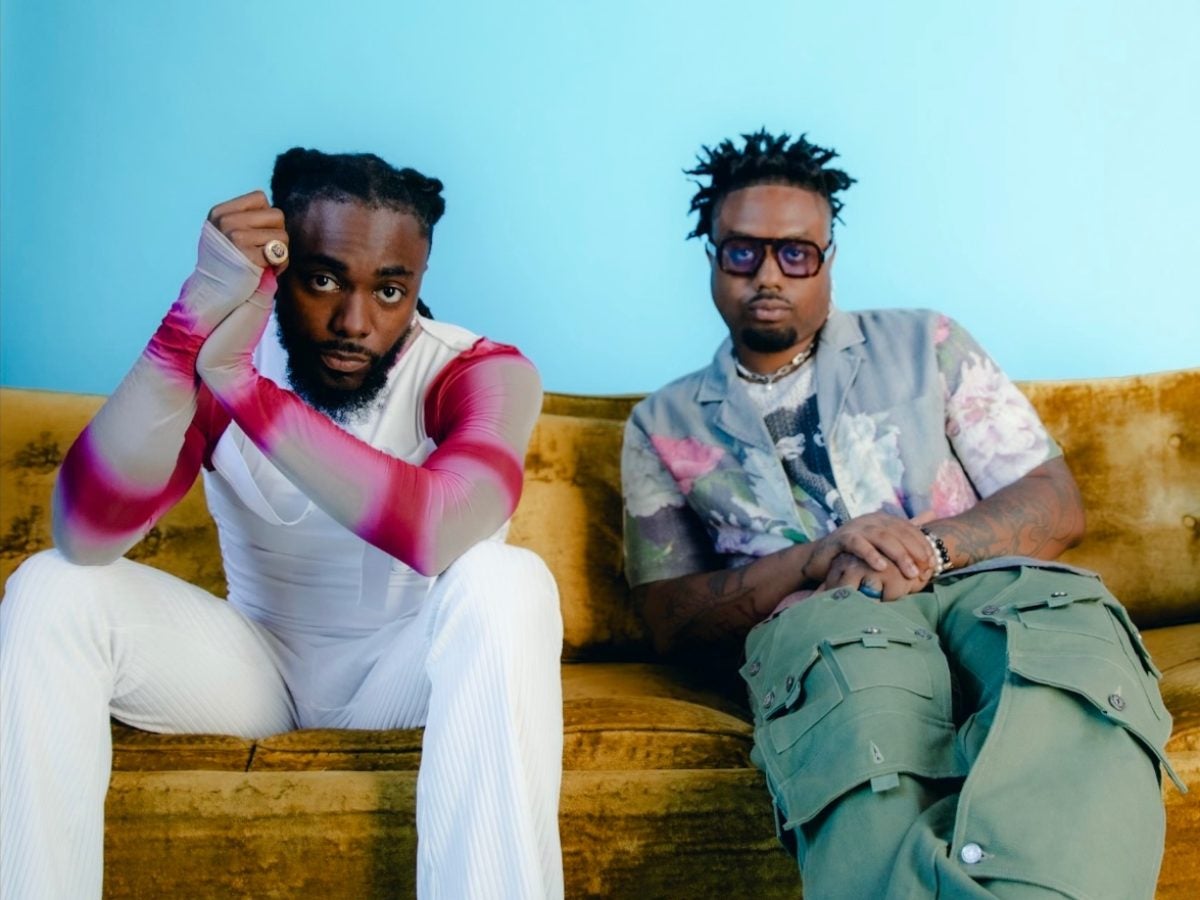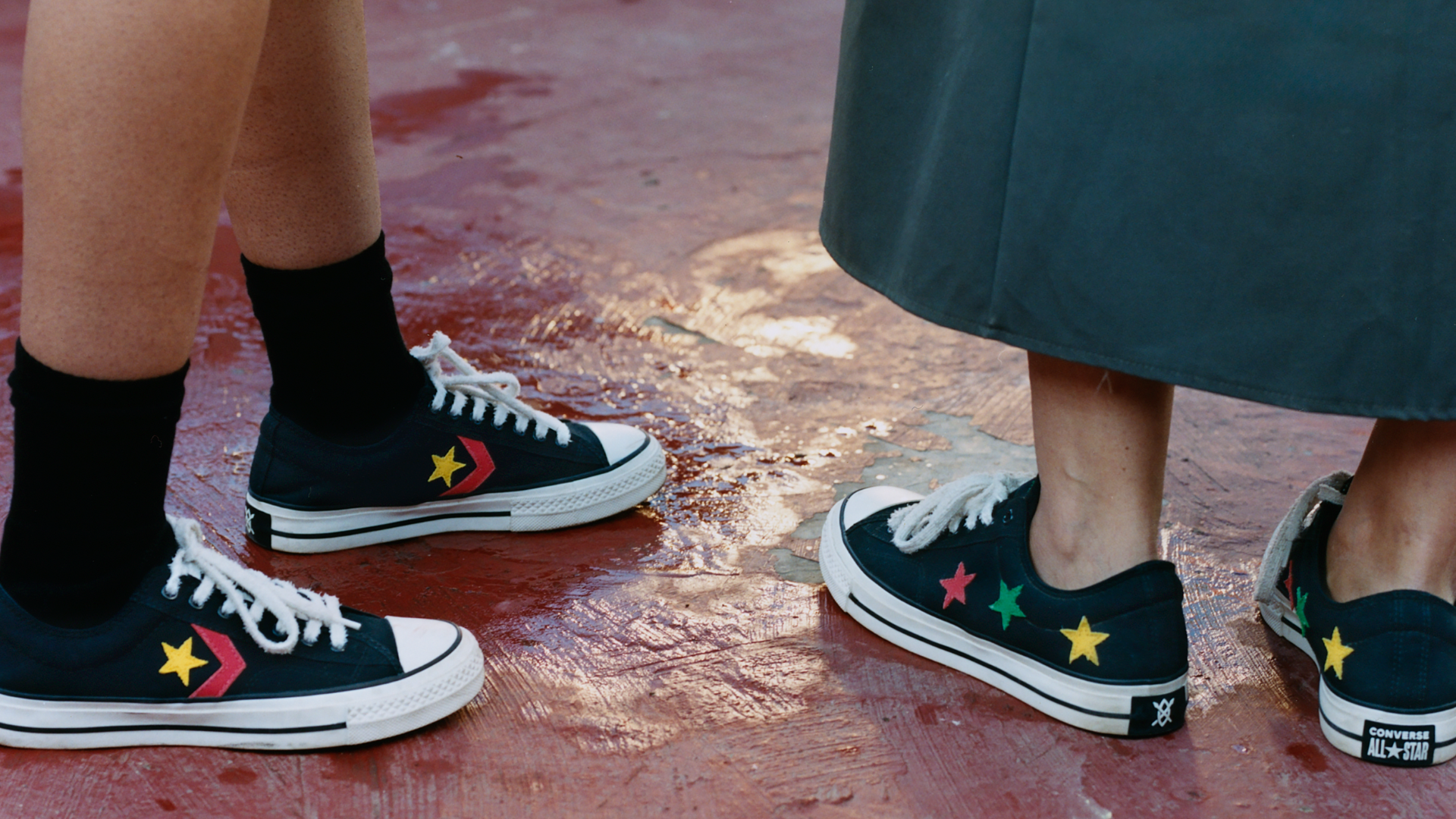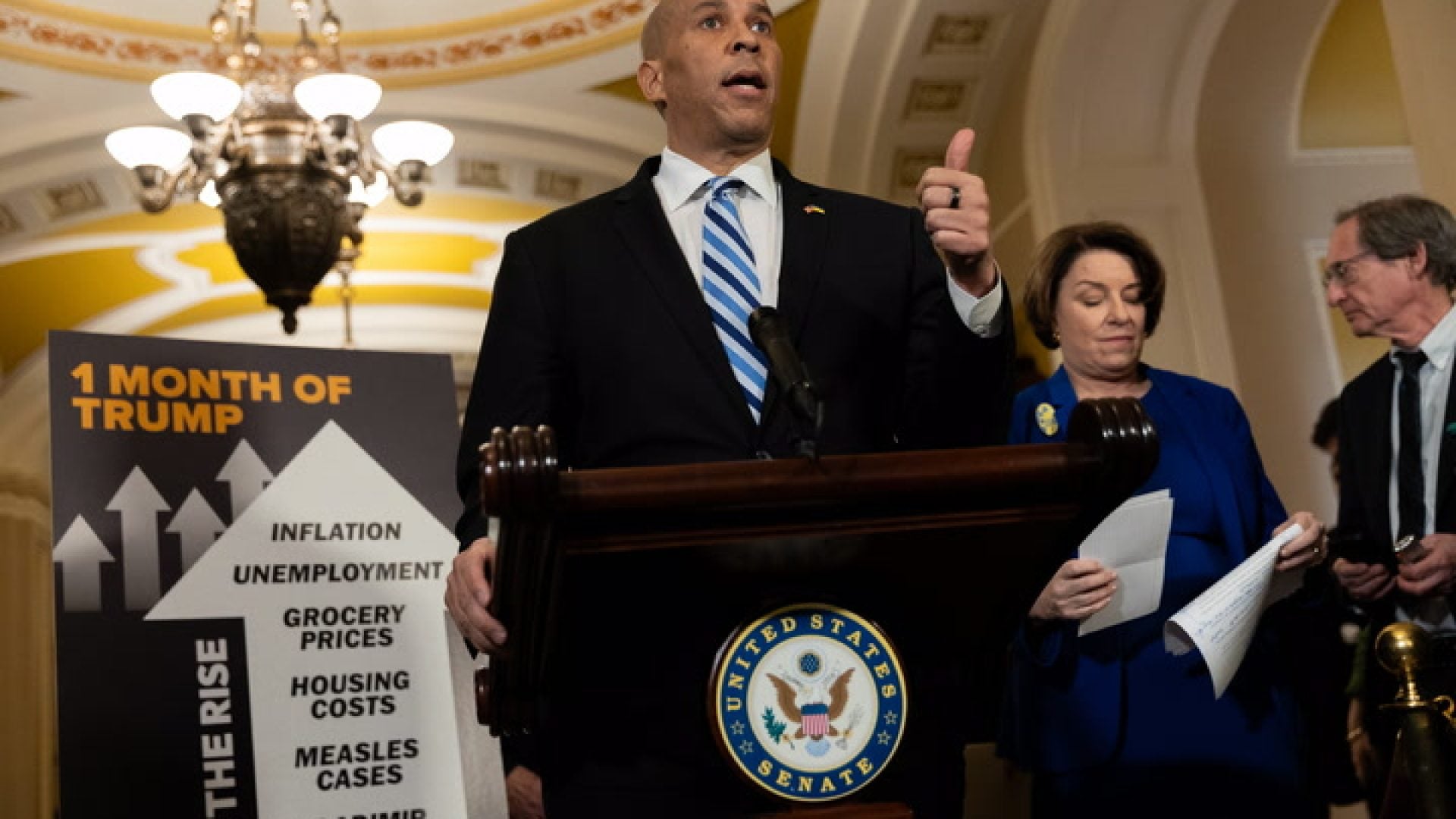
For many college graduates, homecoming is arguably one of the most exciting times of the year. Reconnecting with old friends, reminiscing on old times, and just being able to break away from the shackles of adulthood, even for just a few days. But when you’re an alumni of a Historically Black College and University, the experience is entirely different.
When it comes to school pride, no one does it better than an attendee of an HBCU. The powerful sounds of the bands, fraternity and sorority culture, and the overall family atmosphere that you get whenever you step back on campus during homecoming weekend. And when it comes to Black college experience, the Atlanta-based rap duo EARTHGANG definitely knows a thing or two about that.
While studying at Hampton University, Johnny Venus and Doctur Dot came into their own both as men as well as artists. “I think Hampton definitely helped us establish two things – One, I think college helped us establish a kind of musical space of our own creativity,” Doctur Dot says. “We’re from Atlanta and we could have easily followed Atlanta trends, but that time away forced us to make our own style of music.”
Amidst HBCU homecoming season this talented group partnered with TIDAL for their Live feature that lets users act as a DJ and allow friends to listen to their song choices in real time. In celebration of the partnership, TIDAL gave back to EarthGang’s alma mater by gifting Hampton $10,000 on their behalf.
“TIDAL created the Live feature on their app where you can create playlists and share music with people to listen alongside you at the same time,” Venus tells ESSENCE. “You share music with your fans, supporters, and community. Of course, with us going to Hampton our TIDAL Live session is inspired by our time on campus.”
To celebrate homecoming, EARTHGANG spoke about how college helped in their early careers, their introduction to hip-hop music, TIDAL’s new Live feature, and more.
EARTHGANG is one of the most creative groups, not just in hip hop, but just in general. What fuels your creativity?
Johnny Venus: It’s just staying curious, man. We want to continue to explore, continue to surprise ourselves, and continue to challenge ourselves. We enjoy doing something new, we enjoy the novelty of a new project. Even some of our favorite artists, their progression between their albums and how this album was so different from the last album, but it’s still fire, it’s still hard, it’s still relatable, it kind of always inspired us to keep that same thread through everything we do, not just music, but how we just approach our brand.
So, it’s like, “All right, you did this, but now it’s time to close this chapter and create something totally new, a new experience for the fan base,” and we just love doing that.
With hip-hop turning 50 this year, can you each tell me what your guys’ introduction into hip hop was?
Doctor Dot: That’s crazy! My introduction into hip-hop? I feel like it’s always existed around me.
The womb.
I was about to say, I’m sure my dad was playing stuff when we were riding around with my mom in the car, and I probably was catching those old drumming beats. My pops is into a lot of that old Miami stuff, Uncle Luke type music; and then he was playing OutKast for me as early as I can remember.
My introduction into hip-hop started off with my big cousins and stuff. A lot of them would be playing No Limit and Cash Money, and then from there, that’s where my uncle swooped in and gave me my first Goodie Mob CD. Then, we would go to Peppermint Music in Greenbriar Mall and listen to some of that. 8Ball, MJG, OutKast, Mystikal, and a lot of Southern stuff too. This was before the internet and stuff like when people were still buying CDs, so that reach was very near and very close and you would just love to hear people rapping about not only their experience and their life, but they would be naming streets that you would be riding down. You’re like, “Oh, this is shit is crazy.” So, it’s still in real-time.
But I would say even before that, just listening to rhythm and blues, hella records that hip-hop sampled. My parents are a little older and my dad would be like, “Oh, you like this? This is where they sampled this from.” And then you’re like, “Oh, man. This is crazy.” Playing Curtis Mayfield all the time and then when you hear The Joy record produced by Pete Rock with Kanye and Jay-Z, you’re like, “Dang, bro.”
That’s fire.
So, it kind of – as hip hop as done – bridged the gap of the generations.
Where do you guys see Southern hip-hop going in the future and how do you feel about its place in hip hop right now?
I’m going to say this, I knew about Southern hip-hop before I knew about Northern hip-hop even as a toddler. That’s when hip hop was at its probably most regional, so I ain’t even know about Jay-Z and stuff until I was in middle school going into high school, maybe. Because around then, he was competing with 50 and that’s when I started noticing that was a thing up there.
But before that, hip-hop was only Southern to me. So, I got a very deep connection to it. I feel like it’s always been omnipresent through the culture of hip hop. I feel like it’s always kind of pushed hip-hop to be more than just a hip-hop genre. I feel like the South is what made hip-hip global to me. So, I feel like it’s always kind of pushed that edge of hip-hop and I think it’s always going to have a place in hip hop because of them.
I definitely think the South played an extremely, extremely integral part in changing the sound of hip-hop because for me, before the South, most of the records were samples. It may not have been the Kanye West type of sample, but it was a sample from this song, a sample from that song, a sample from this song merged together, but then when you get down to the South and you start with Miami bass music and you be like, “All right, bro, this is just bass.” We ain’t heard this before that somebody just went over there and made this happen. So, I will give the credit to the South for taking the sound of hip-hop and moving it into the next space.
..and made it more original.
I love it so much, and we’re still doing that with artists like 21, with producers Tay Keith, producers like Metro Boomin. We’re still doing that. We’re taking something totally new and making it hip-hop.
All right, so I kind of want to jump around real quick. You guys’ partnership with TIDAL – can you speak to me a little bit about the Live feature?
With the TIDAL Live feature, you can create playlists and make it available for people to listen to in real time. Anywhere, so you’re basically your own DJ. You share music with your fans, supporters, and community. Of course, with us going to Hampton our TIDAL Live session is inspired by our time on campus.
From whatever memory it is, there’s a song that goes along with it and we just wanted to share this experience. Our time at Hampton was crazy. So many classic records came out during that time, so the music that we loved, the music that we were being put onto. I wanted to share that.
So, tell me about your time at Hampton and how you think that helped you all music early on?
I think Hampton definitely helped us establish two things – One, I think college helped us establish a kind of musical space of our own creativity. We’re from Atlanta and we could have easily followed Atlanta trends, but that time away forced us to make our own style of music. And I think that’s what attracted talent like J.I.D., and, JB – who helped us create Spillage Village. The fact that we were all away from trends and just forced to be in an isolated place where we just could create on our own.
But also, I think it helped us as far as establishing what the brand was going to be. We were selling our own merch in the beginning on campus, walking around just trying to get people to just buy a shirt that said “EARTHGANG,” without the best explanation. They were like, “Who’s Earthgang?” In class, like, “You just want us to wear your name?” Like, “Yeah.” And we would sell the shirts at 12:00 to 2:00 and stuff like that. I don’t know if it’s even cool to do now, but we would like to hustle the campus. We were running around as freshmen, selling our name.
What do you two look forward to most when it comes to homecoming?
Probably seeing people I ain’t seen in a long time and remembering things that I haven’t remembered in a long time because we store different things in different parts of our brain and sometimes we don’t revisit them until we’re in the environments that trigger them in the first place and it’ll be nice to go back and be like, “Dang, I did used to walk here.” Or, “I used to enjoy looking at this.” It would be nice to have those kinds of memories again.
That’s a great point, going back with those memories and those experiences and just that time in your life where things were simple.
Yeah, and then how you grew. But now, just experiencing things like that in your mind. Of course, the people. So, we’ll get a chance to reminisce with the fans and really see how far people have come and grown within those years of graduation to now, seeing people pursue their purpose and achieve, and turning up, getting lit, of course.





